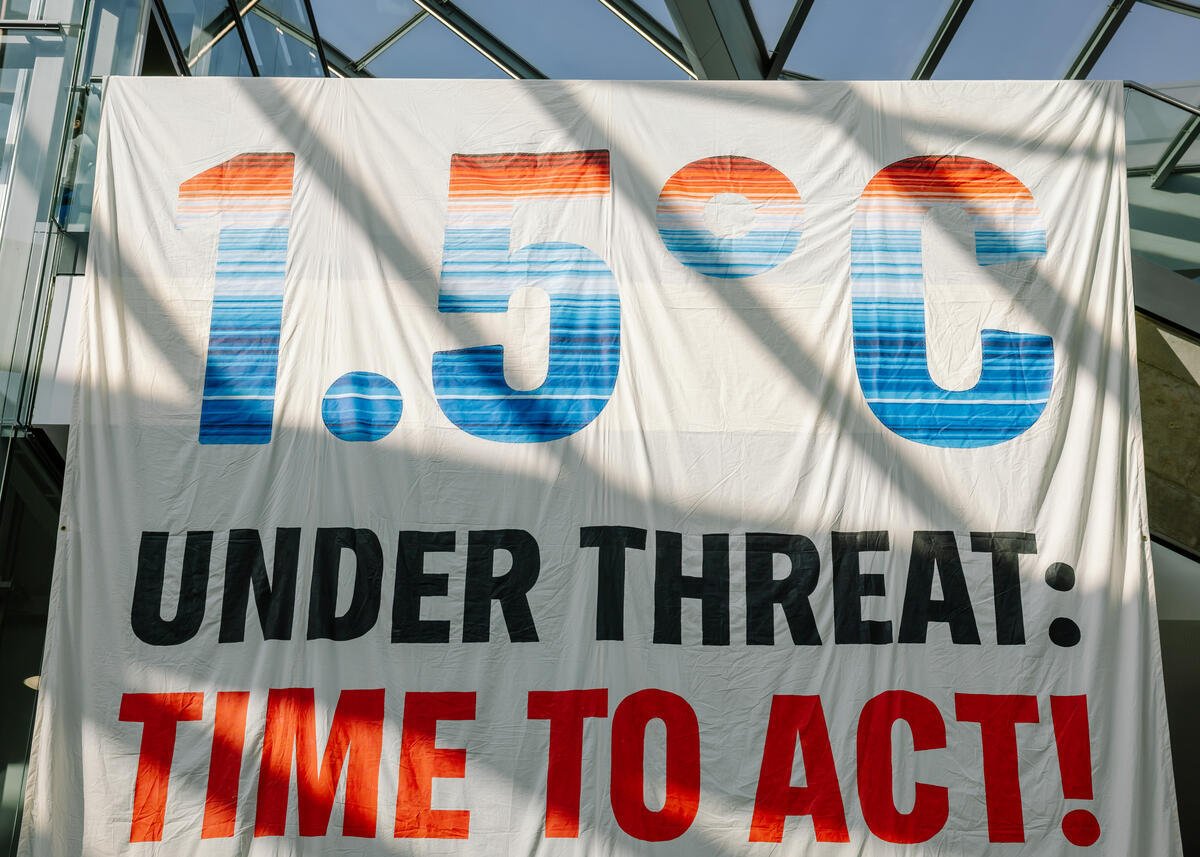The Hague, Netherlands – The world’s highest court has just delivered a landmark Advisory Opinion on the obligations of States in the face of the climate emergency.[1] The International Court of Justice (ICJ) decision delivers historic protections that strengthen the responsibilities of States under international law beyond the Paris Agreement, with several key additional obligations including the duty of all countries to prevent significant harm to the environment and the duty to cooperate.
The Court’s decision obligates States to regulate businesses on the harm caused by their emissions regardless of where the harm takes place. Significantly, the Court found that the right to a clean, healthy and sustainable environment is fundamental for all other human rights, and that intergenerational equity should guide the interpretation of all climate obligations.
Danilo Garrido, Legal Counsel at Greenpeace International, said:
“This is the start of a new era of climate accountability at a global level. The ICJ advisory opinion marks a turning point for climate justice, as it has clarified, once and for all, the international climate obligations of States, and most importantly, the consequences for breaches of these obligations. This will open the door for new cases, and hopefully bring justice to those, who despite having contributed the least to climate change, are already suffering its most severe consequences. The message of the Court is clear: the production, consumption and granting of licenses and subsidies for fossil fuels could be breaches of International Law. Polluters must stop emitting and must pay for the harms they have caused.”
The decision also clarifies that breaches of climate obligations give rise to full reparations: including stopping harmful actions, and giving financial compensation for any related losses and damages. These can include compensation for climate harm and even the need for an immediate cessation of GHG emissions above a science-based safety threshold. Most significantly, the Court made important findings that will ensure climate justice for future generations in the most climate-impacted communities, offering a historic level of protection.
Flora Vano, Vanuatu Women-Led Community Leader, said:
“Tonight I’ll sleep easier. For the first time, it feels like Justice is not just a dream but a direction. The ICJ has recognised what we have lived through – our suffering, our resilience and our right to our future. This is a victory not just for us but for every frontline community fighting to be heard. Now, the world must act.”
Earlier this month, the Inter-American Court of Human Rights delivered another historic decision on the obligations of States in the face of the climate emergency.[2] The Court established that governments must take “urgent and effective actions” to safeguard the right to a healthy climate, and that companies have obligations with regard to climate change and its impacts on human rights. This decision unequivocally puts the rights of people and nature above the interests of polluters.
In 2023, Greenpeace International’s iconic ship, the Rainbow Warrior, sailed through the Pacific and gathered testimonies from communities affected by climate change. These were submitted to the ICJ, along with testimonies from other communities on the frontlines of the climate crisis.[3] Subsequently, the Court held a two-week-long public hearing on the obligations of States with respect to climate change, featuring testimonies of impacts and resistance of frontline communities across the world, and with unprecedented participation from States and international organisations, following written comments submitted to the Court last year.[4][5]
Today’s decision adds to the global momentum towards climate accountability and to the Polluters Pay Pact, a global alliance of over 200,000 people on the frontlines of climate disasters, concerned citizens, first responders like firefighters, humanitarian groups, political leaders, and more than 60 NGOs, including Greenpeace International. It demands that governments worldwide make oil, coal and gas corporations pay their fair share for the damages they cause.
ENDS
High resolution images for media use can be found in the Greenpeace Media Library
Notes:
[1] Obligations of States in respect of Climate Change Request for Advisory Opinion
[2] The Inter-American Court of Human Rights, one of three regional human rights courts in the world, has the role to interpret and clarify the obligations of States. Its decisions inform national governments and courts. Read the full decision, Opinión Consultiva (in Spanish)
[5] In 2019, 27 law students from The University of the South Pacific united in forming Pacific Islands Students Fighting Climate Change, with a campaign for the International Court of Justice to issue an Advisory Opinion on the responsibilities of States in respect to climate change. The resolution, put forward by Vanuatu alongside a global alliance of States, passed the United Nations General Assembly unanimously in March 2023, co-sponsored by over 130 countries.
Contacts:
Marie Bout, Strategic Comms Manager, Greenpeace International Climate & Energy Programme, +33 (0) 6 05 98 70 42, [email protected]
Greenpeace International Press Desk, +31 (0) 20 718 2470 (available 24 hours), [email protected]
Source link
Greenpeace International www.greenpeace.org



